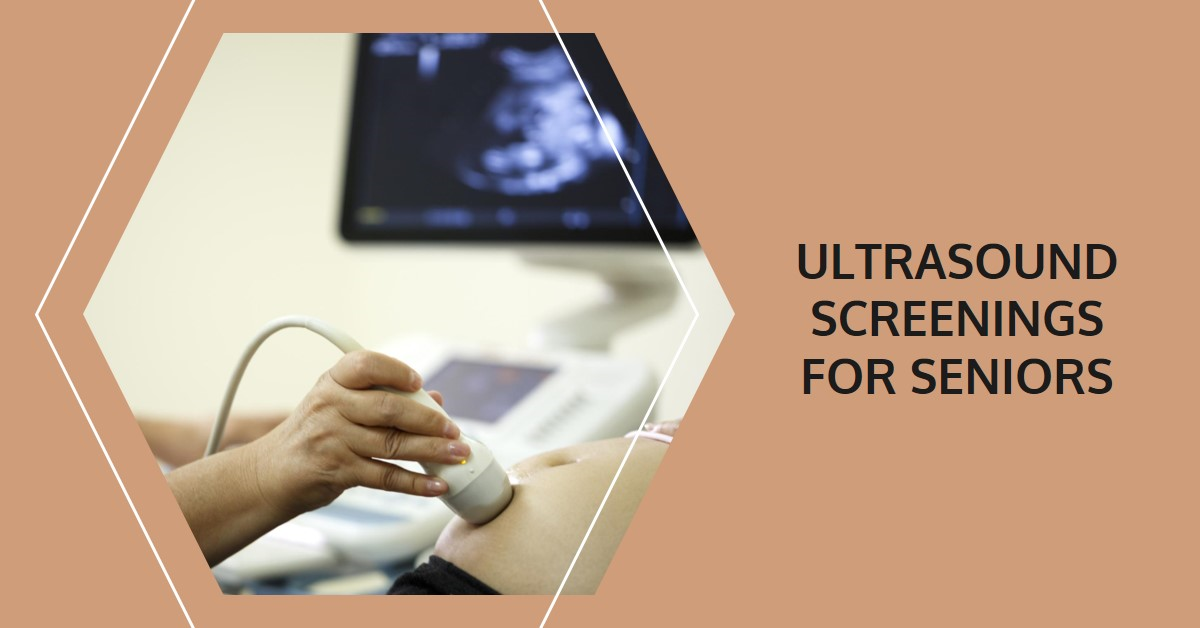As we age, prioritizing our health becomes even more critical. For seniors living in assisted living or retirement communities, regular health screenings can be the key to maintaining independence and well-being. Ultrasound scans, a safe and painless imaging technique, can play a valuable role in this proactive approach to health.
Why Ultrasounds are Beneficial for Seniors
Ultrasound technology uses sound waves to create detailed images of internal organs and tissues. Unlike X-rays, ultrasounds don’t involve radiation exposure, making them a safe option for repeated screenings. This is particularly beneficial for seniors who may require more frequent monitoring of certain health conditions.
Here’s a closer look at the advantages of ultrasounds for seniors:
- Painless and Non-invasive: Ultrasounds are a comfortable procedure, often requiring minimal preparation or discomfort.
- Real-time Imaging: Ultrasound scans provide immediate results, allowing doctors to assess the situation and recommend treatment plans quickly.
- Versatility: Ultrasounds can be used to examine a wide range of organs and tissues, making them a valuable tool for diagnosing various conditions.
Recommended Ultrasound Screenings for Seniors in Assisted Living
While there’s no one-size-fits-all approach to health screenings, certain ultrasound scans can be particularly beneficial for seniors in assisted living communities. Here are some of the most common applications:
- Abdominal Aortic Aneurysm (AAA) Screening: An AAA is a potentially life-threatening bulge in the aorta, the major artery that carries blood from the heart to the rest of the body. According to the American Heart Association, AAA is more common in men over 65, especially those with a history of smoking [1]. A quick and painless abdominal ultrasound can detect AAAs early, allowing for timely intervention and improved outcomes.
- Urinary Tract Issues: Urinary incontinence and urinary tract infections (UTIs) are prevalent among seniors. Ultrasounds can be used to visualize the kidneys, bladder, and ureters, helping diagnose problems like bladder stones, enlarged prostates in men, and residual urine volume in women [2].
- Cognitive Decline Monitoring: While not a definitive diagnostic tool, certain brain ultrasounds can be used to assess blood flow patterns, which may provide clues about cognitive decline or potential risk factors for dementia [3].
- Joint and Musculoskeletal Imaging: Ultrasound scans are often used to examine muscles, tendons, and ligaments for conditions like arthritis, tendonitis, and bursitis. This information is crucial for managing pain and maintaining mobility, a significant concern for seniors [4].
Important Considerations Before an Ultrasound Scan
While generally safe, it’s important to discuss any underlying health conditions or concerns with your doctor before undergoing an ultrasound. In some cases, depending on the specific area being scanned, limited food or drink intake may be required beforehand.
How Ecotown Diagnostics Can Help (consider this the first mention)
Finding a reliable diagnostic center with experienced technicians is crucial for seniors. Ecotown Diagnostics, with its commitment to patient comfort and high-quality imaging, can be a valuable partner in ensuring your well-being.
Living near Bangalore?
Many seniors choose to retire in communities around Bangalore due to the pleasant climate and access to quality healthcare. If you’re a senior living near Bangalore and require an ultrasound scan, consider Ecotown Diagnostics for a comfortable and efficient experience.
FAQs for Seniors Considering Ultrasound Scans
- Are there any risks associated with ultrasounds? Ultrasound scans are generally safe with minimal to no risks involved.
- How long does an ultrasound scan typically take? The duration of an ultrasound scan varies depending on the area being examined, but it usually takes 15-30 minutes.
- Will my insurance cover the cost of an ultrasound scan? Most insurance plans cover medically necessary ultrasounds. It’s always best to check with your insurance provider beforehand to confirm coverage details.
- Do I need to prepare for an ultrasound scan? In most cases, no special preparation is required. However, your doctor may advise you to limit food or drink intake depending on the specific area being scanned.
- Who will interpret the results of my ultrasound scan? A radiologist, a doctor specializing in interpreting medical images, will analyze the ultrasound scan near me and provide a report to your doctor. Your doctor will then discuss the results with you and recommend the next steps.
Conclusion
Ultrasound scans offer a safe, painless, and versatile method for promoting proactive health management in seniors. By incorporating these scans into your regular health screenings, you can empower yourself to stay informed about your health and work with your doctor to maintain a vibrant and independent life.
Also know ECG for Seniors: Key Factors & 2024 Advancements.

